The Catholic Church might not seem like the most natural ally in a technology fight. It’s a centuries-old institution that holds to quite socially conservative values as Western societies have become more secular, and is still reckoning with the fallout from its sexual abuse scandal and ties with colonialism, to name just a couple.
Yet, the Church can have immense influence. There are 1.4 billion Catholics around the world, a number which continues to grow, and that gives the head of the Church a form of soft power with many world leaders. Pope Francis’ encyclical on climate change, Laudato si’, proved to be an influential contribution to arguments to accelerate climate action. People may also forget the diplomatic influence the pontiff can have, as Francis played a key role in the short-lived rapprochement between the United States and Cuba under Barack Obama.
After the election of a new pope on May 8, 2025, we wait to see how Robert Prevost, now known as Pope Leo XIV, will choose to use the power and influence that comes with his office. The limited statements we have from him suggest artificial intelligence is high on his list, and his intervention may prove helpful to those trying to focus on the real impacts of how the technology is deployed rather than the fantastical narratives often used to distract the public.
Renewing a concern for workers
Prevost is not the first Pope Leo, and the choice of his papal name gives an early indication of the tone he’s trying to take to the papacy. Francis was well known for his more progressive bent, at least on the political spectrum of a conservative religious institution, and particularly his focus on social justice and the wellbeing of the poor. Some of the actions of Leo XIII, occasionally referred to as the “Pope of the Workers,” were very much in line with that tradition.
Leo XIII held the post from 1878 to 1903, a time of social divide and political upheaval. His legacy is primarily one of addressing social inequality and advocating for the rights of workers. In his 1891 encyclical Rerum novarum, Leo XIII was responding to the hardships created by the industrial revolution, including the immiseration of newly urbanized workers, the scandal of child labor, and the growing divide between wealthy capitalists and the paupers being left behind by the new system.

He advocated for fair wages and the rights of workers to form trade unions, explaining that after workingmen’s guilds had been destroyed, “by degrees it has come to pass that working men have been surrendered, isolated and helpless, to the hardheartedness of employers and the greed of unchecked competition.” When working people reached the point of needing to strike, he argued, “it is frequently because the hours of labor are too long, or the work too hard, or because they consider their wages insufficient,” and it was a failure of government not to have remedied that situation before it reached the need for workers to take action into their own hands.
The encyclical was certainly not the most radical document being published at the time. It criticized capitalism and the depravation it was creating among so many, but socialism wasn’t spared either. Yet, for the Church, it proved to be a key intervention in support of the rights of workers and of human dignity more widely. It’s a project the modern Pope Leo seems intent on continuing.
Rejecting the AI fantasy
Two days after white smoke emerged from the Sistine Chapel, Leo XIV addressed the College of Cardinals and told them his choice of papal name was a direct result of how Rerum novarum dealt with “the social question in the context of the first great industrial revolution.” In his view, those teachings have a renewed relevance, given “developments in the field of artificial intelligence that pose new challenges for the defense of human dignity, justice, and labor.” He echoed that concern about AI again on May 12 in comments to media assembled in Rome to cover the conclave.
Just because Leo cited AI does not mean he’s a natural ally in a campaign against its propagation through workplaces and the wider society. After two years of AI hype, it’s not uncommon to hear influential figures call attention to the technology for any number of reasons. Even criticism can become a veiled form of AI hype, particularly the position that chatbots are on the cusp of gaining sentience that could threaten humanity’s very existence — a perspective often termed “AI safety.”
Yet there are reasons to believe that isn’t where Leo’s talk of AI is coming from. His reference to Rerum novarum suggests a particular concern for tangible impacts on workers, rather than science fictional fantasies. That’s also reflected by the limited statements he made in the days after his election. Echoing this assessment, an editorial in the National Catholic Register noted that Leo seems to feel that AI could “privilege only the rich and powerful and turn out to be profoundly damaging for vast numbers of workers” — a reflection of the concern for the poor not just in the 1891 encyclical, but also throughout the papacy of his predecessor.
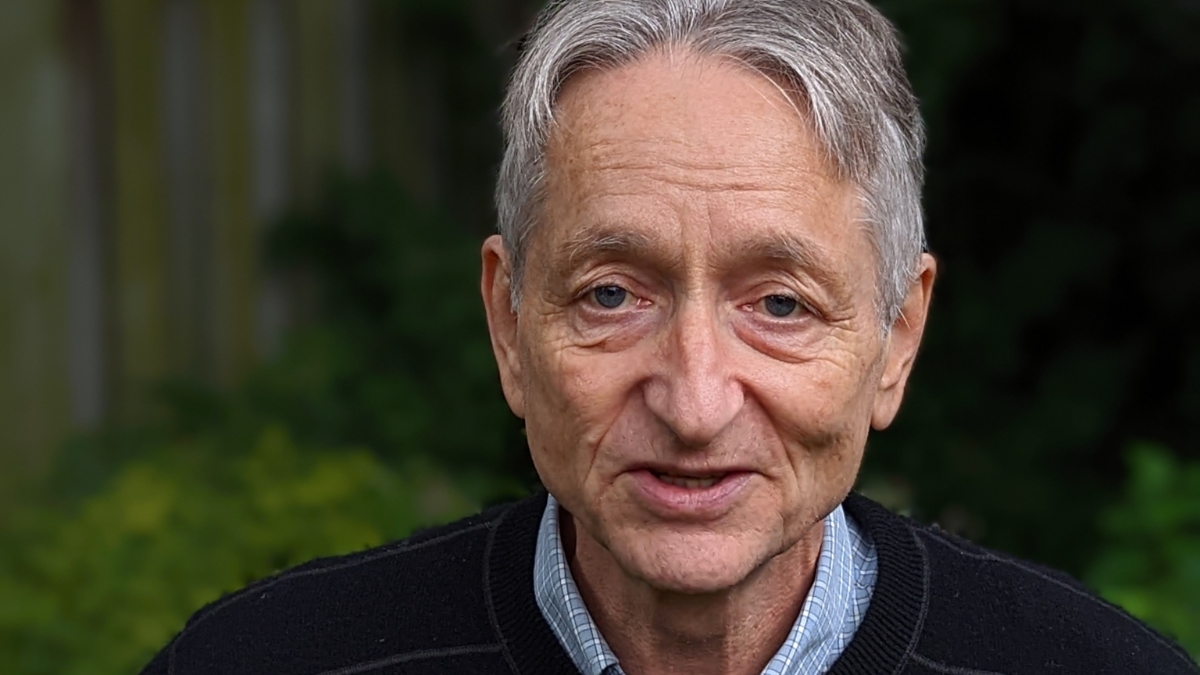
The Church’s reckoning with this most recent wave of AI began several years ago. In August 2023, Francis explicitly addressed the advancing discussion around AI governance, calling for vigilance to ensure the technology was not advanced “at the expense of the most fragile and excluded.” Months later, he argued that the ways AI was being deployed risked leaving us “adrift in a mire of confusion, prey to the interests of the market or of the powers that be.”
His message marking the World Day of Social Communications was clearly prepared by informed advisors, even noting the misleading nature of calling AI a form of “intelligence” as it remained grounded in tangible realities presented by the technology’s deployment. “It is up to us to decide whether we will become fodder for algorithms or will nourish our hearts with that freedom without which we cannot grow in wisdom,” Francis asserted near its conclusion. But that was not the end of his engagement with the issue. A detailed note published months before his death could prove to be a guide as Leo makes the consequences of AI even more central to his papacy.
Echoing targeted AI criticism
In Antiqua et nova, the Church grapples with the challenges presented by artificial intelligence and some the broader consequences of digital communication. It isn’t a document that outright rejects AI. Instead, it frequently notes there can be positive outcomes if it is properly deployed and regulated, but focuses intently on the ways it is misused to cause a wide variety of harms.
The authors of the note fundamentally disagree that AI is any way equivalent to the capacities of a human. AI is “confined to a logical-mathematical framework,” they explain, and since it “lacks the richness of corporeality, relationality, and the openness of the human heart to truth and goodness, its capacities — though seemingly limitless — are incomparable with the human ability to grasp reality.” The argument is not a new one. It brings to mind the writings of Joseph Weizenbaum, the creator of the first chatbot who became a vocal critic of AI. He argued that computers can never think in the same way as humans because they do not have human experiences, despite the attempts of an “artificial intelligentsia” to make people see human and computer as interchangeable. As a result, he felt we should never “substitute a computer system for a human function that involves interpersonal respect, understanding, and love,” as he explained in his 1976 book Computer Power and Human Reason.
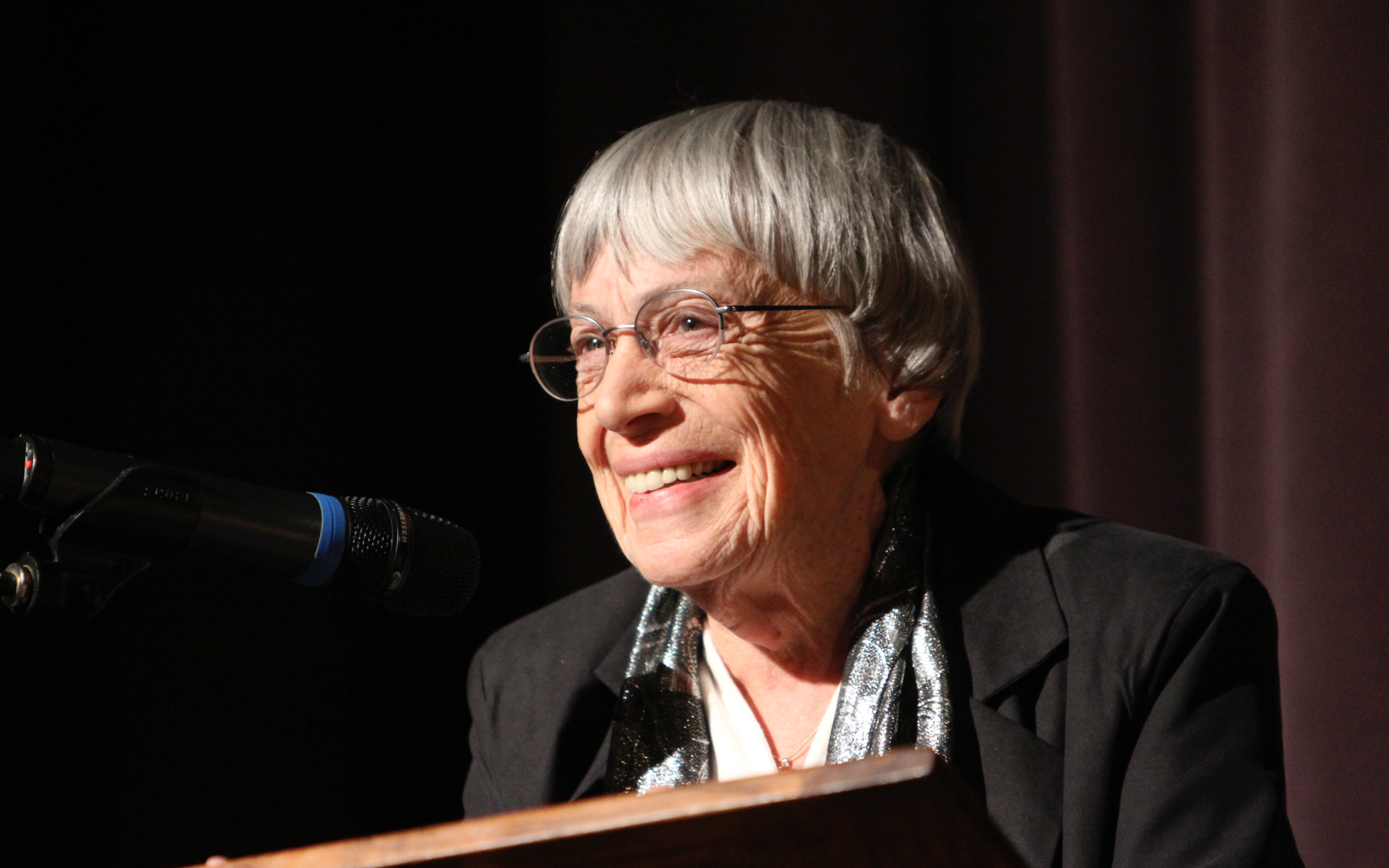
The Vatican’s note on AI goes through a long list of the technology’s implementations, including everything from its deployment in healthcare and education to the ways it’s used in warfare, to call out concerning developments that are echoed by critics outside the Church. To focus on a point that Leo has emphasized, the note warns about the risk of AI being used to “deskill workers, subject them to automated surveillance, and relegate them to rigid and repetitive tasks.” Indeed, those are developments we’re already observing, and the Church warns about the creation of a technocratic world “of humanity enslaved to efficiency, where, ultimately, the cost of humanity must be cut.” The approach of dominant tech companies is not one that enhances human dignity in any capacity.
Antiqua et nova also makes a broader point about technology and its development that is worth acknowledging. The Church stresses that technology has unquestionably improved human society and the human condition, but reminds us that “not all technological advancements in themselves represent genuine human progress.” Many critics often call for proper assessment of the technical foundations, along with the social and environmental impacts and even political underpinnings of new technologies being deployed by tech companies — something the barons of Silicon Valley vigorously oppose. The Church adds that a “moral evaluation” is also necessary.
Building an anti-AI coalition
The Vatican’s interventions in the artificial intelligence debate are surprising for how much they reflect the arguments being made by many of the technology’s critics, infusing them with a spiritual and moral argument one would expect from a religious authority. At the same time the Christian right in the United States is explicitly campaigning for people to stop feeling an empathy for others — an argument recently echoed by Elon Musk — the Catholic Church takes a fundamentally different view.
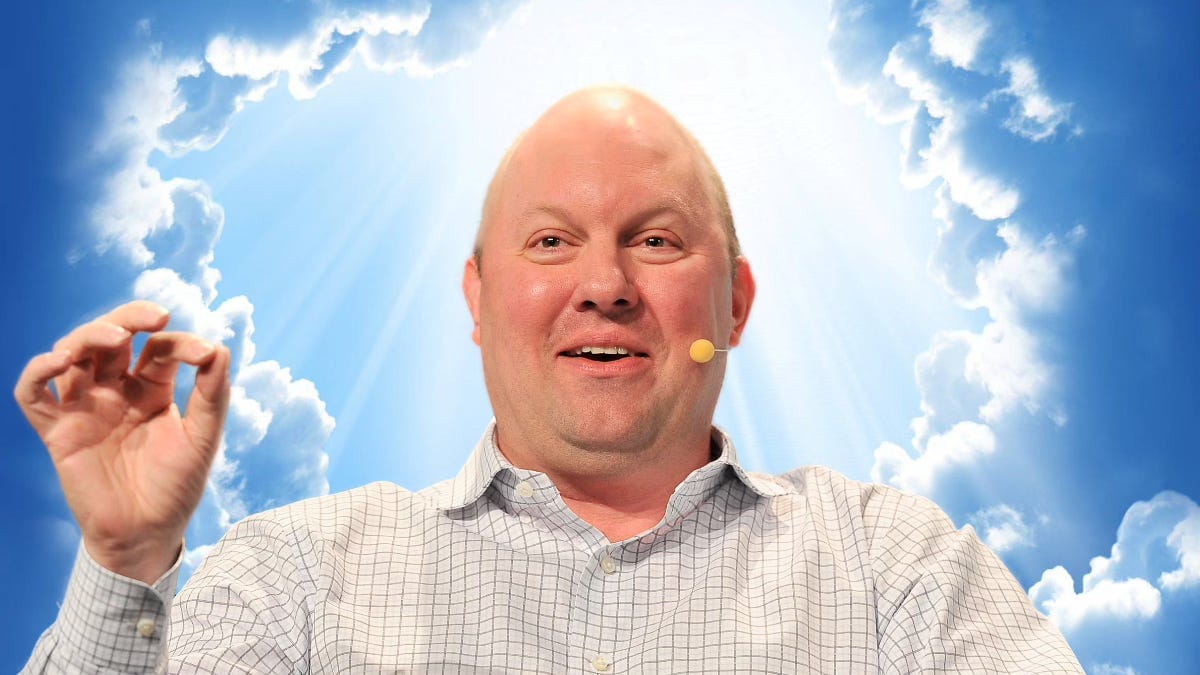
“Genuine relationships, rooted in empathy and a steadfast commitment to the good of the other, are essential and irreplaceable in fostering the full development of the human person,” the authors write in Antiqua et nova. While AI may be able to use “anthropomorphic language,” there is no chatbot that can “genuinely experience empathy.” In that way, people like Musk are trying to make us see ourselves as machines in a self-serving attempt to forward a far-right techno-political project.
We can’t fool ourselves about the drawbacks of the Catholic Church. It continues to advocate conservative approaches on abortion and the treatment of transgender people, with mention of the “unborn” coming up in the note on AI. Yet, at a moment when Silicon Valley is deploying so much to try to force AI on the whole of society and steamroll regulatory attempts to put even the lightest guardrails on their ambitions, the Pope’s concern about the impacts of the technology could be useful in building a wider coalition to oppose them.
In the same way that Pope Francis’ encyclical on climate change brought an important spiritual and moral dimension to the argument to accelerate environmental action, an effort by Pope Leo to do something similar on AI with a focus on its tangible impacts could be a welcome contribution. Even Francis’ climate arguments remain relevant, given the environmental consequences of the hyperscale data center buildout powering the AI boom. Tech critics reading Antiqua et nova might be surprised to find the leaders of the Catholic Church relying less on faith than the AI boosters trying to build their sci-fi futures and bring computer gods into being.


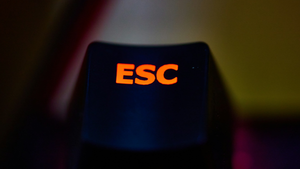

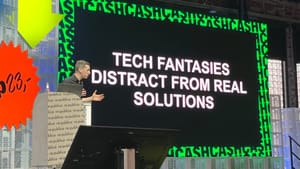








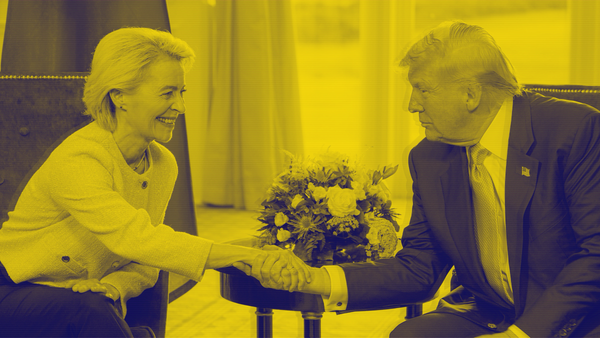
Member discussion